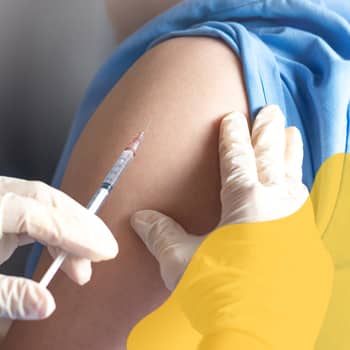Forgot password? Reset here
NHS and Private Flu Vaccination Service
Protect Yourself Against the Flu
The flu vaccine is a safe, effective, and essential way to protect yourself and those around you from influenza. Every year, the NHS offers free flu vaccinations to people at risk of becoming seriously ill from flu.
The best time to have your flu vaccine is in autumn or early winter, before the flu starts spreading — but you can still get vaccinated later in the season.
Why Is the Flu Vaccine Important?
While flu can be unpleasant for most people, it can be dangerous or even life-threatening for others, especially those with underlying health conditions. Getting vaccinated significantly reduces the risk of serious illness, hospitalisation, and complications.
Who Is Eligible for a Free NHS Flu Vaccine?
For the 2023–2024 flu season, you may be eligible for a free NHS flu vaccine if you are:
- 65 years and over (including those turning 65 by 31 March 2025)
- 18 to under 65 years with clinical risk factors such as:
- Chronic respiratory diseases (e.g., asthma requiring regular steroids, COPD)
- Heart disease and vascular disease
- Kidney disease (Stage 3, 4, or 5)
- Liver disease
- Neurological conditions (e.g., Parkinson’s disease, motor neurone disease)
- Learning disabilities
- Diabetes or adrenal insufficiency
- Spleen disorders (asplenia or spleen dysfunction)
- Weakened immune system (e.g., HIV, cancer treatments)
- Morbid obesity (BMI ≥ 40 kg/m²)
- Pregnant women (including those who become pregnant during the flu season)
- Residents of long-stay residential care homes
- Household contacts of immunocompromised individuals
- Carers in receipt of Carer's Allowance or those caring for vulnerable people
- Frontline health and social care staff directly involved in caring for vulnerable individuals
Book Your NHS Flu Vaccination
Booking is quick and easy!
👉 Book your NHS vaccination appointment online
You can also walk in or contact us directly to schedule your vaccination.
Private Flu Vaccination Option
If you are not eligible for an NHS-funded flu vaccination, you can still receive a private flu vaccine at Bere Peninsula Pharmacy.
Private flu vaccination cost: £17.99 (cell-based vaccine, QIVc)
Protect yourself and your loved ones this flu season — book your flu vaccine today!

